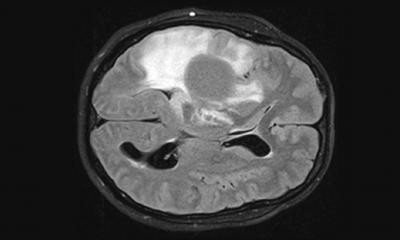News • Medication quality
No clear evidence that most new cancer drugs extend or improve life
The majority of cancer drugs approved in Europe between 2009 and 2013 entered the market without clear evidence that they improved survival or quality of life for patients, finds a study published by The BMJ.
Even where drugs did show survival gains over existing treatments, these were often marginal, the results show. Many of the drugs were approved on the basis of indirect (‘surrogate’) measures that do not always reliably predict whether a patient will live longer or feel better, raising serious questions about the current standards of drug regulation.
The researchers, based at King’s College London and the London School of Economics say: "When expensive drugs that lack clinically meaningful benefits are approved and paid for within publicly funded healthcare systems, individual patients can be harmed, important societal resources wasted, and the delivery of equitable and affordable care undermined." The research team analysed reports on cancer approvals by the European Medicines Agency (EMA) from 2009 to 2013.
Of 68 cancer indications approved during this period, 57% (39) came onto the market on the basis of a surrogate endpoint and without evidence that they extended survival or improved the quality of patients' lives. After a median of 5 years on the market, only an additional 8 drug indications had shown survival or quality of life gains.
Thus, out of 68 cancer indications approved by the EMA, and with a median 5 years follow-up, only 35 (51%) had shown a survival or quality of life gain over existing treatments or placebo. For the remaining 33 (49%), uncertainty remains over whether the drugs extend survival or improve quality of life. The researchers outline some study limitations which could have affected their results, but say their findings raise the possibility that regulatory evidence standards "are failing to incentivise drug development that best meets the needs of patients, clinicians, and healthcare systems." Taken together, these facts paint a sobering picture, says Vinay Prasad, Assistant Professor at Oregon Health & Science University in a linked editorial. He calls for “rigorous testing against the best standard of care in randomized trials powered to rule in or rule out a clinically meaningful difference in patient centered outcomes in a representative population” and says “the use of uncontrolled study designs or surrogate endpoints should be the exception not the rule.” He adds: “The expense and toxicity of cancer drugs means we have an obligation to expose patients to treatment only when they can reasonably expect an improvement in survival or quality of life.” These findings suggest “we may be falling far short of this important benchmark.”
Our current research and development model has failed
Emma Robertson
This study comes at a time when European governments are starting to seriously challenge the high cost of drugs, says Dr Deborah Cohen, Associate Editor at The BMJ, in an accompanying feature. She points to examples of methodological problems with trials that EMA has either failed to identify or overlooked, including trial design, conduct, analysis and reporting. “The fact that so many of the new drugs on the market lack good evidence that they improve patient outcomes puts governments in a difficult position when it comes to deciding which treatments to fund,” she writes. "But regulatory sanctioning of a comparator that lacks robust evidence of efficacy, means the cycle of weak evidence and uncertainty continues."
In a patient commentary, Emma Robertson says: “It’s clear to me and thousands of other patients like me that our current research and development model has failed.” Emma is leader of Just Treatment, a patient led campaign with no ties to the pharmaceutical industry, which is calling for a new system that rewards and promotes innovation, so that more effective and accessible cancer medicines are brought within reach.
Source: The BMJ
06.10.2017





